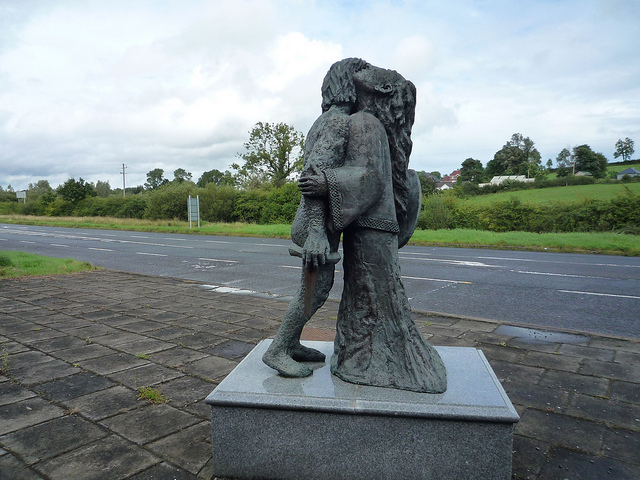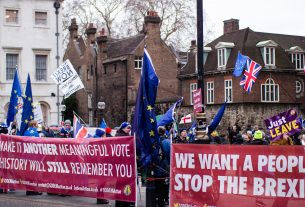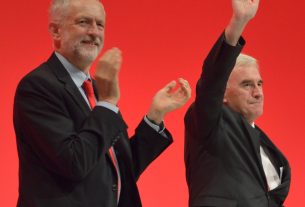The UK faces an increasing risk of an ‘accidental hard Brexit’ a senior European Union negotiator has warned.
Sabine Weyand, deputy chief negotiator for the EU, said Brussels had taken ‘full ownership’ of the Brexit deal agreed with the UK.
But she said there was ‘no ownership’ of it in Parliament and she found it hard to see how a majority for any sort of Brexit deal could be agreed among MPs.
She added that calls from Brexiteer MPs and others for the deal’s Irish backstop provision to be time-limited defeated the purpose of having it.
The backstop aims to prevent a hard border in Ireland in the event that the UK and EU cannot agree a future trading relationship, putting the Irish peace process at risk.
It is opposed by Northern Ireland’s Democratic Unionist Party and many Brexiteer Tories, who say it could tie the UK to many EU rules indefinitely.
Weyand, speaking at an event in Brussels, said other Irish border options had been discussed at length during long negotiations with British officials.
She added a lot of the UK debate about the withdrawal deal agreed with Theresa May’s team was ‘uninhibited by any knowledge’ of what was actually in the document.
The Prime Minister’s secretive approach to negotiations and her use of a small team of people had been a handicap in gaining domestic support for the deal, she added.
Weyand, deputy to EU chief negotiator Michel Barnier, said leaders of the bloc were concerned about extending the two-year Article 50 process for the UK’s departure.
With the UK due to leave on March 29, she said Brexit had been ‘eating up the political energy’ for dealing with other pressing issues.
Theresa May is under increasing pressure to secure changes to the backstop proposal in order to get her deal through Parliament at the second attempt.
Her former Foreign Secretary Boris Johnson said winning concessions would be ‘unadulterated good Brexit news.’
DUP Brexit spokesman Sammy Wilson said the government needed to be tough with the EU and ‘face down the stubbornness of Dublin and Brussels.’
He added: “It’s time for the Irish to work constructively and advocate for a sensible trading arrangement with their biggest market in Great Britain.”
But Ireland’s deputy prime minister Simon Coveney insists that changes to the backstop would not be acceptable to Dublin.




